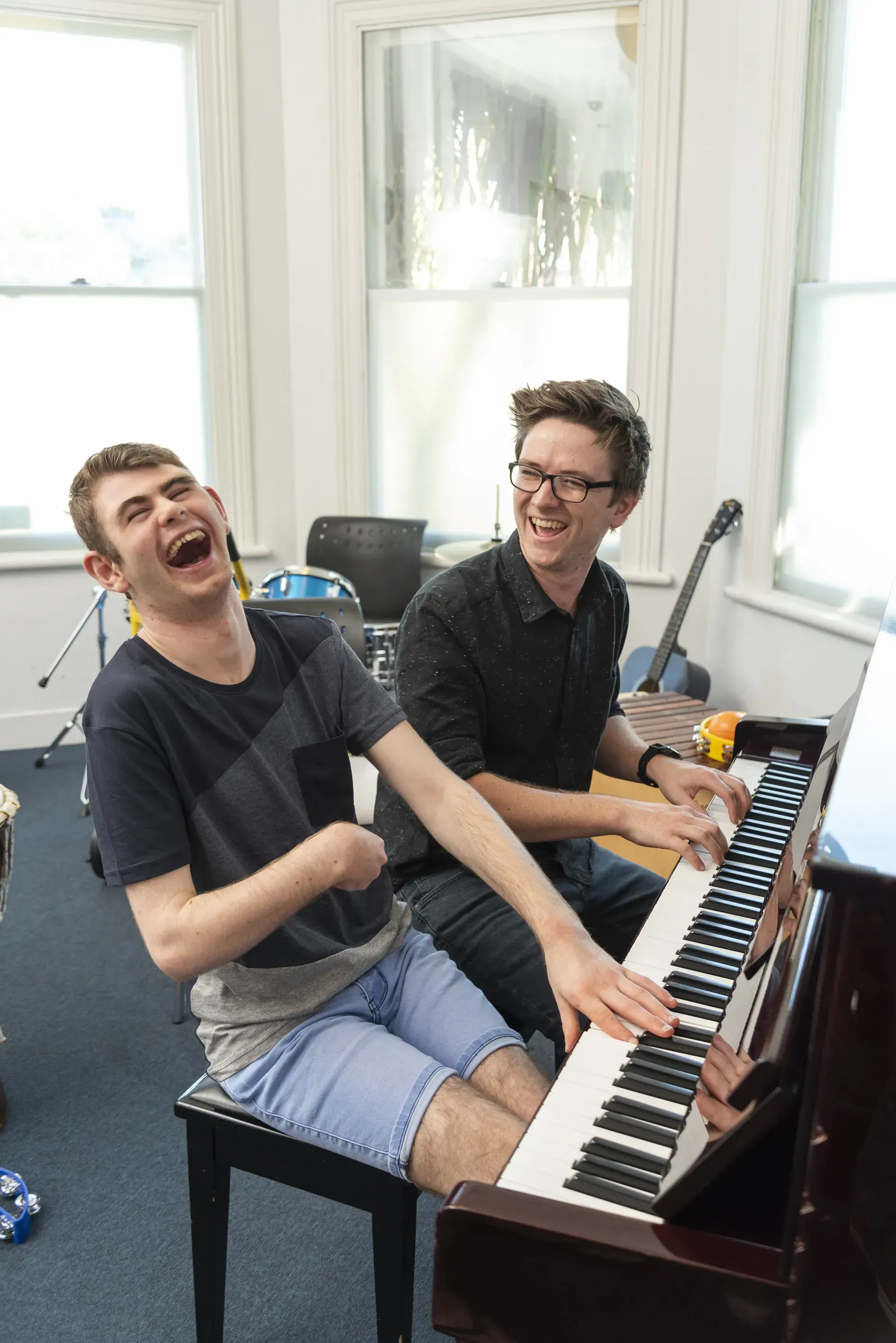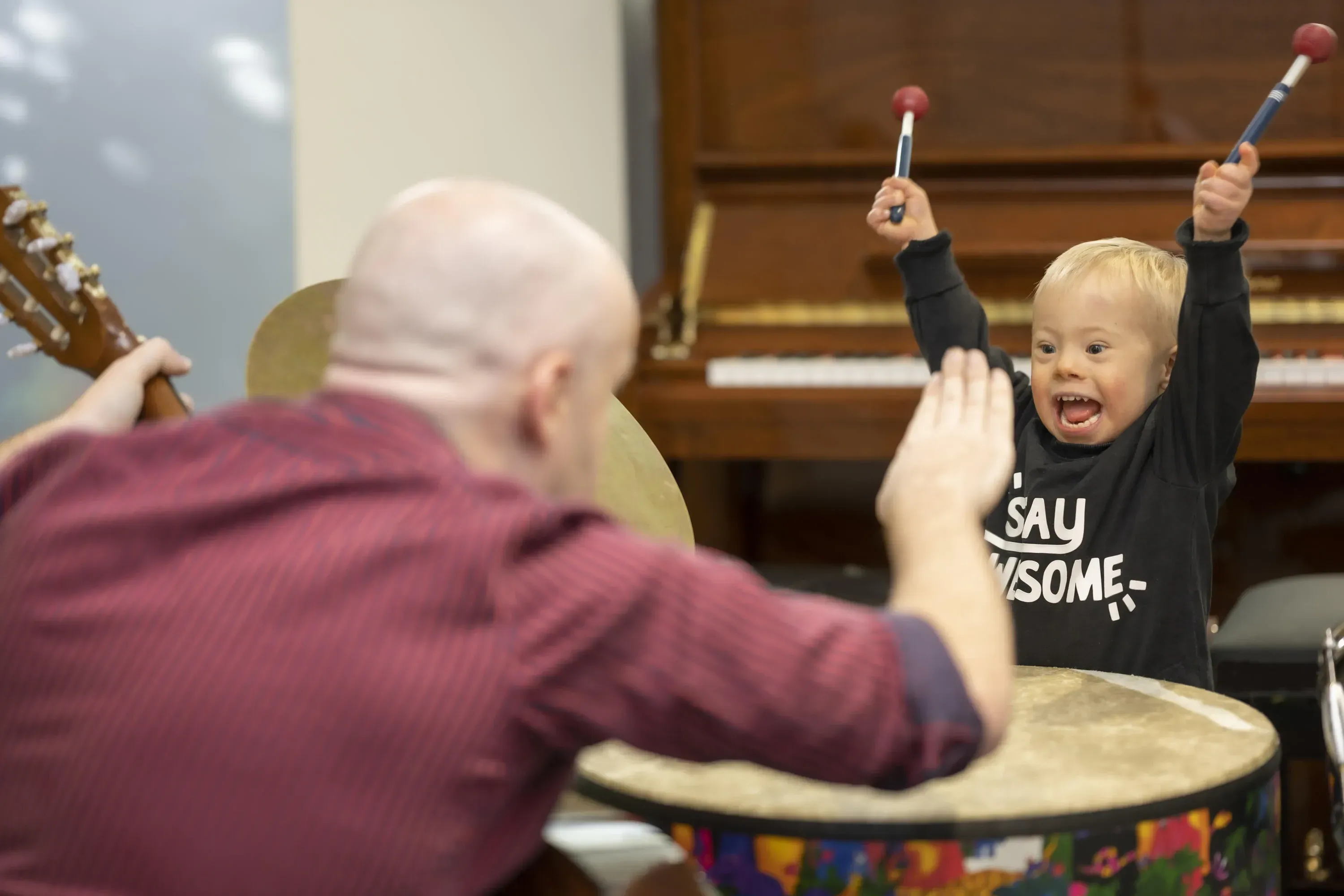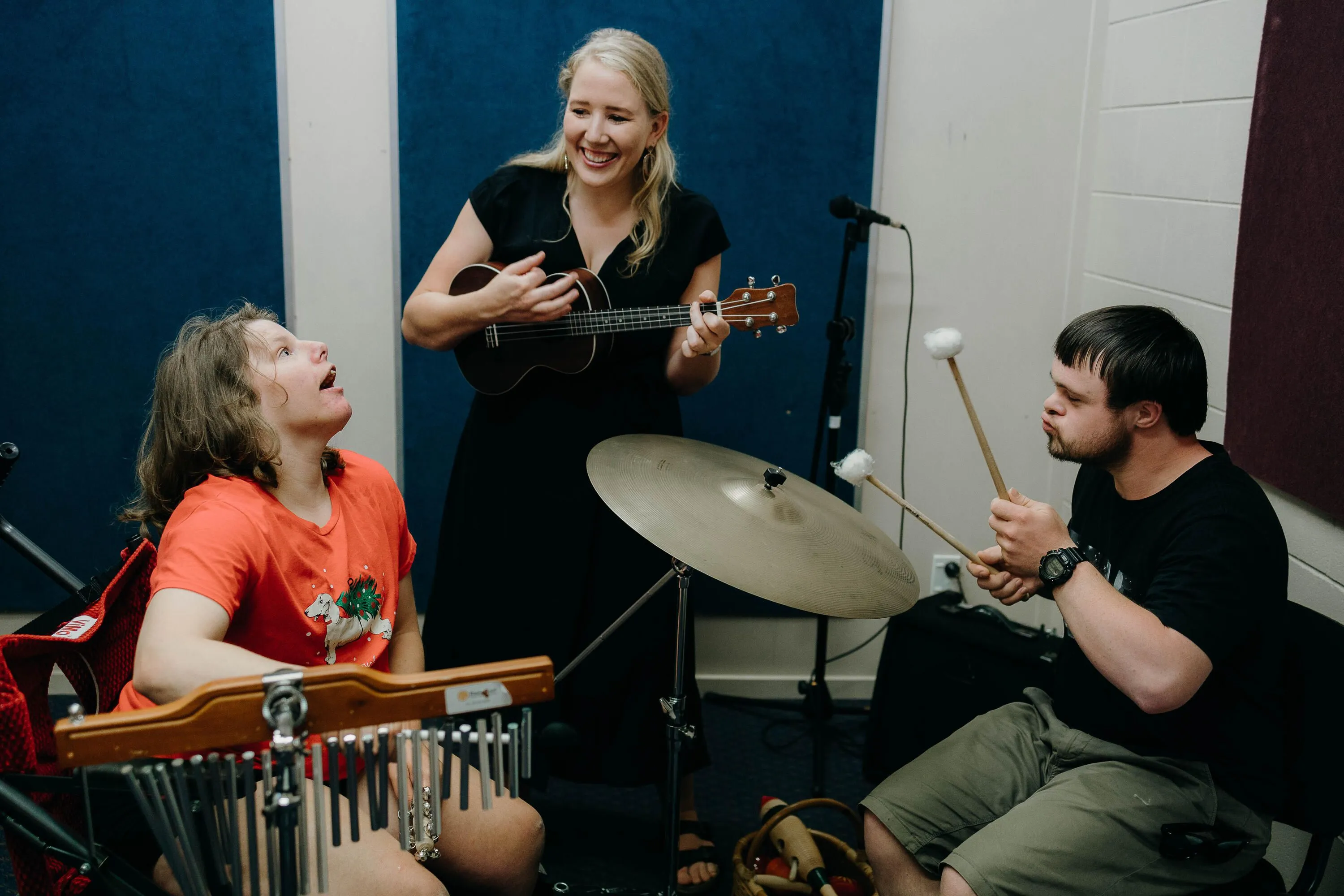Don't Just Gig, Change a Life
Written by
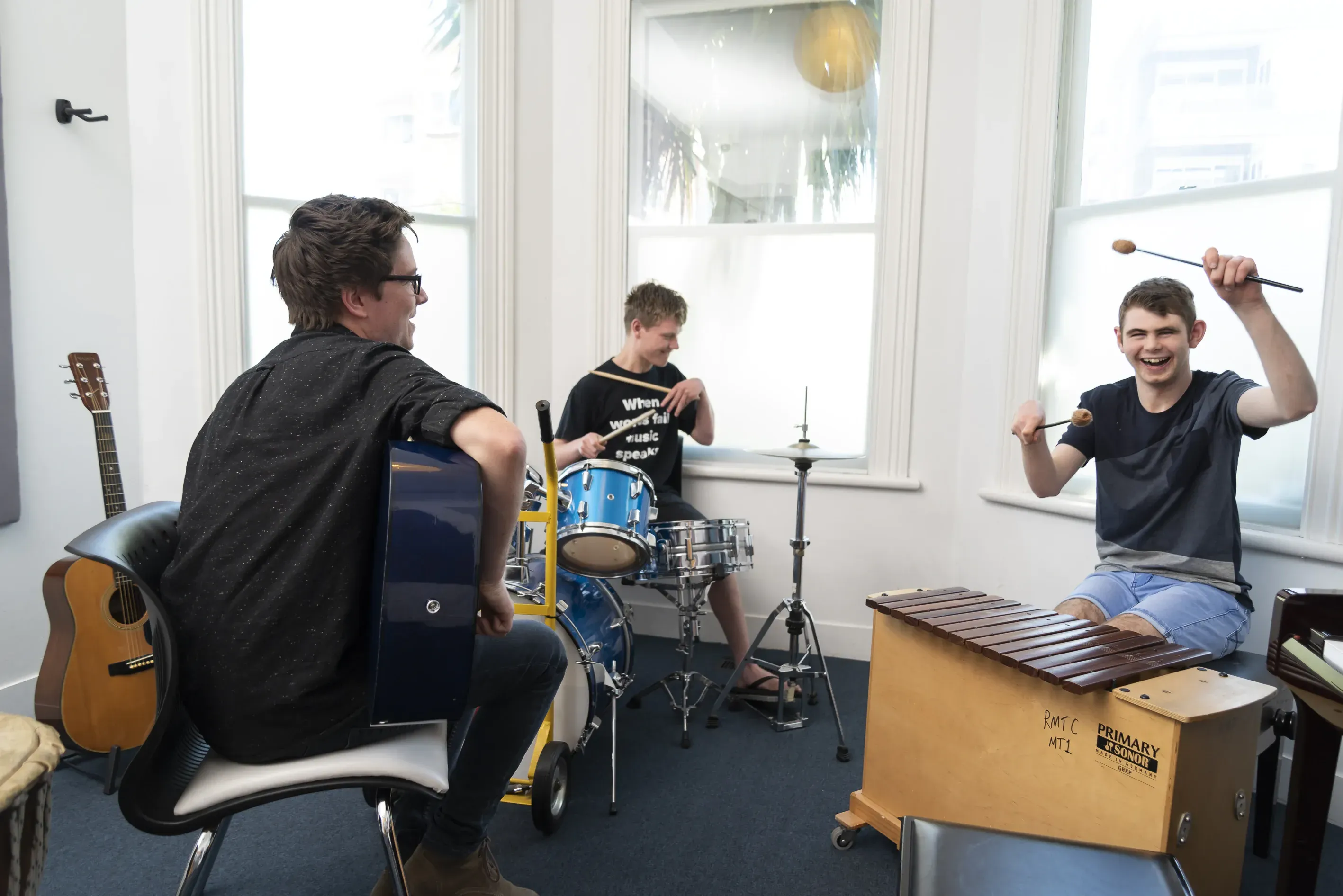
To celebrate Music Therapy Week (15-19 November), registered music therapist Olly Lowery has a challenge to all musicians. The Student Placement Coordinator for the Raukatauri Music Therapy Centre, operator of the Orewa satellite location and the Starship outreach programme, Lowery knows the impact your musical skills can make.
There is a phenomenon in live music when a singer stops mid-chorus and the sound of the crowd singing takes over the room.
As an audience member, it never fails to lift me up and make me feel connected to something greater. The words come as if they are now my own and I feel a sense of empowerment.
Musicians understand this and purposefully utilise it as one of many musical techniques to help their audience feel connected and heard. They know what music is capable of and carefully craft their songs and setlists to guide their audience on a journey, often with a sense of resolution - or at least a sense of having gone somewhere.
These days, I understand this approach from a therapeutic perspective. Music can help people to express themselves, connect with others, process their thoughts, and make their voices heard - so it makes sense that music can be used therapeutically to support people with diverse needs.
As musicians, we know how to quickly adapt our music to match our environments, and as a registered music therapist, I am trained specifically to use music to safely support the people I work with in a clinical and goal-oriented setting.
I work with people who have a wide range of needs from developmental disabilities to dealing with the challenges of hospitalisation. By using improvised music, familiar songs, or just exploring instruments - people can be supported to develop social skills, motivate themselves through physical goals and process mental challenges.
There are approximately 70 registered music therapists currently working in schools, hospitals, rehabilitations units, rest homes, day programmes, community choirs, secure facilities and privately across Aotearoa. But waiting lists are starting to become more common and we need more music therapists to meet the need.
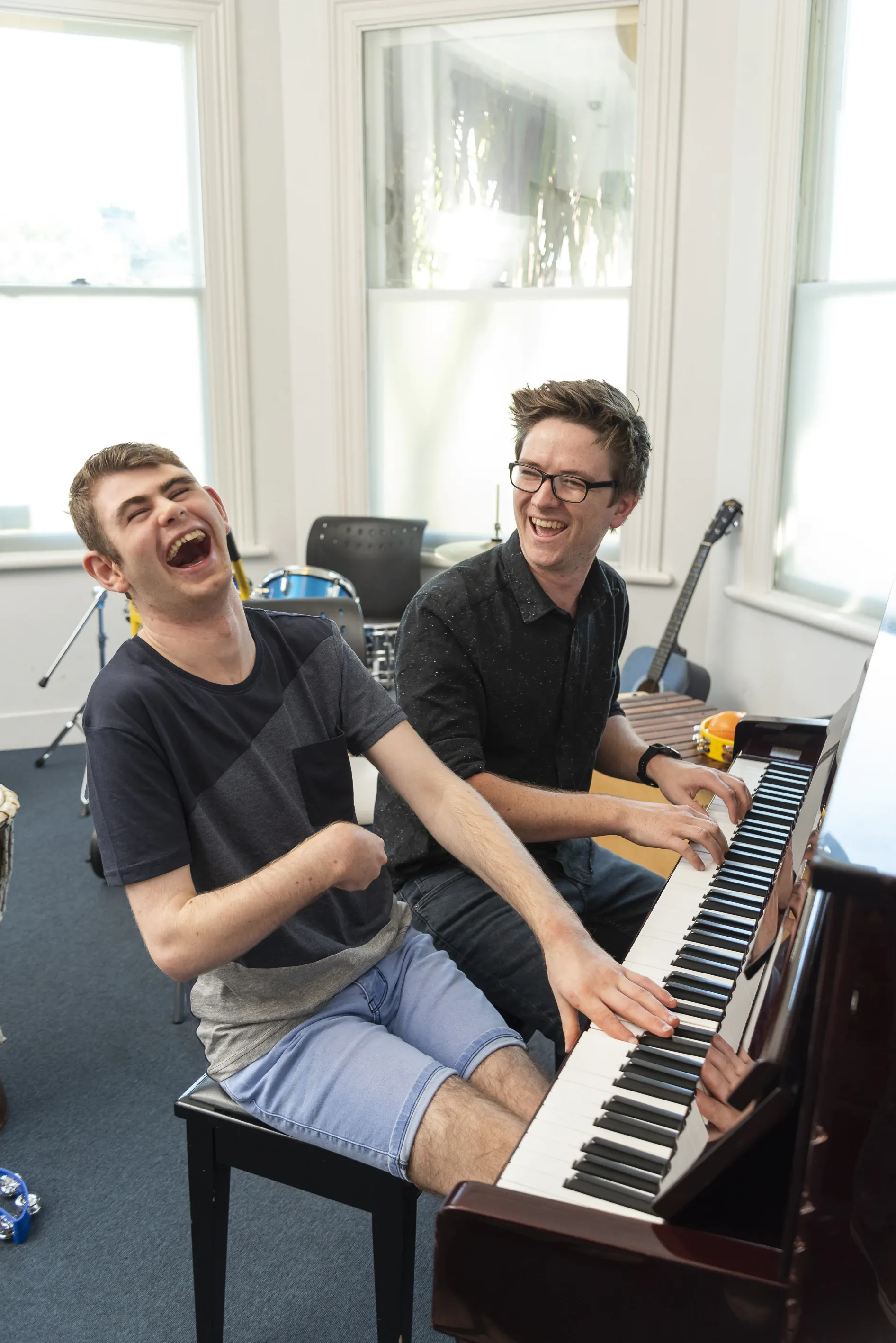
Olly and Daniel share a laugh. Photo: Supplied.
Music therapy is internationally recognised as a clinical intervention that can support people across these settings. We are understanding more and more about the neuroscience behind how our brains respond to music and how it can be harnessed in specific situations - such as dementia care or speech rehabilitation.
Music therapy can be especially helpful where speech is not a primary means of communication - such as some forms of developmental disability - or where speech is lost due to trauma or illness.
The barriers of instrumental elitism are stripped away - participants don’t need to be trained in an instrument, as registered music therapists are trained to facilitate spaces that allow people to engage on a level playing field. People can develop relationships through music regardless of their societal limitations.
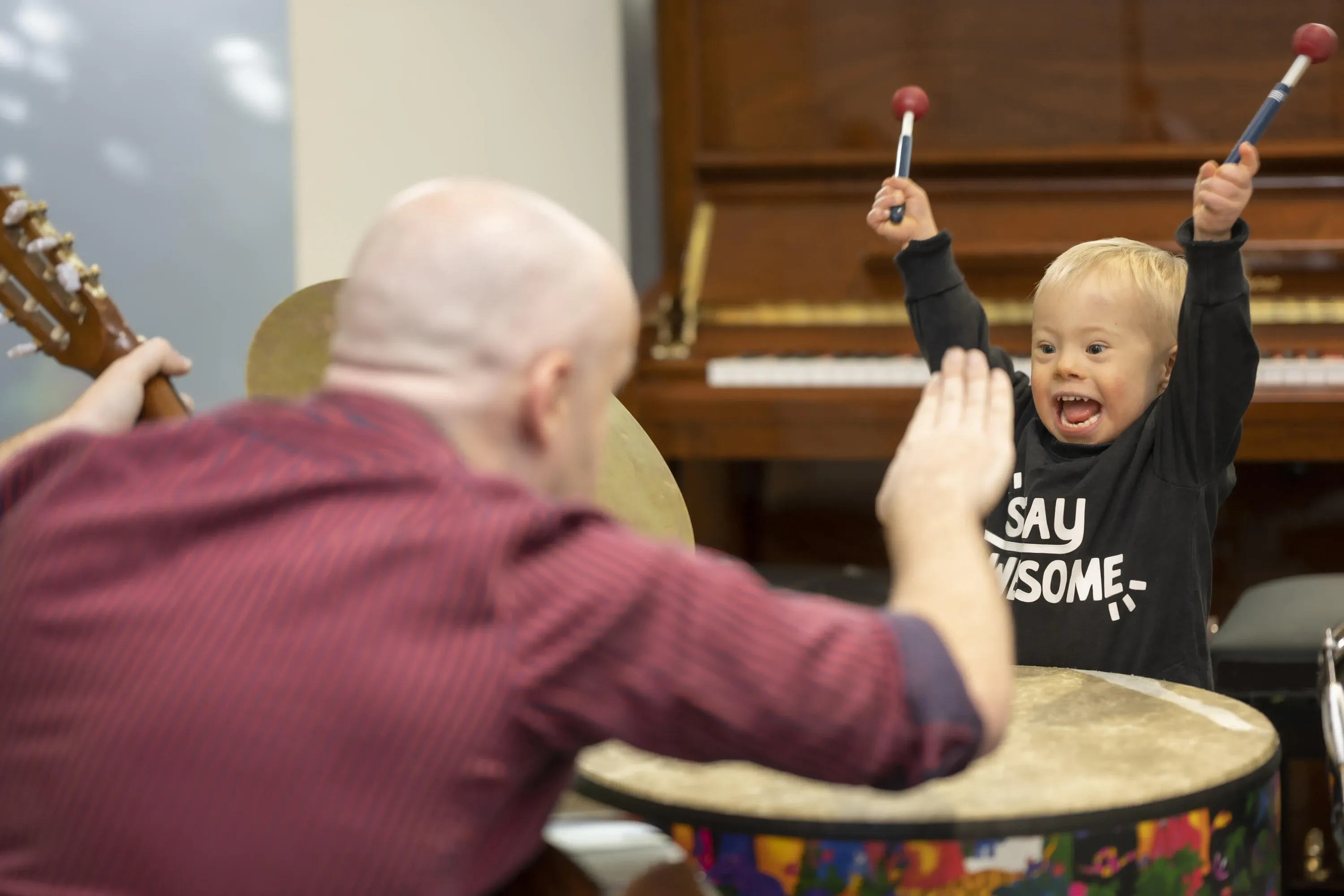
What unbridled joy looks like. Photo: Supplied.
Many of the registered music therapists I know have been (and continue to be) performing musicians. At some point in their journey, they have recognised the extra positive change they can have in the world through music therapy.
Being able to play music is not only a privilege but an ability that is best shared with others. Musicians already have the knowledge and understanding of how to wield the elements of music to connect with their audiences, and by moving into the world of music therapy, they open up the potential of reaching and helping those who would benefit the most.
Arena-selling artists often talk about how special small gigs can be in connecting with their audience. II would go a step further and say that the joy I get from connecting and helping just one person through music is as genuine and gratifying as playing on any stage.
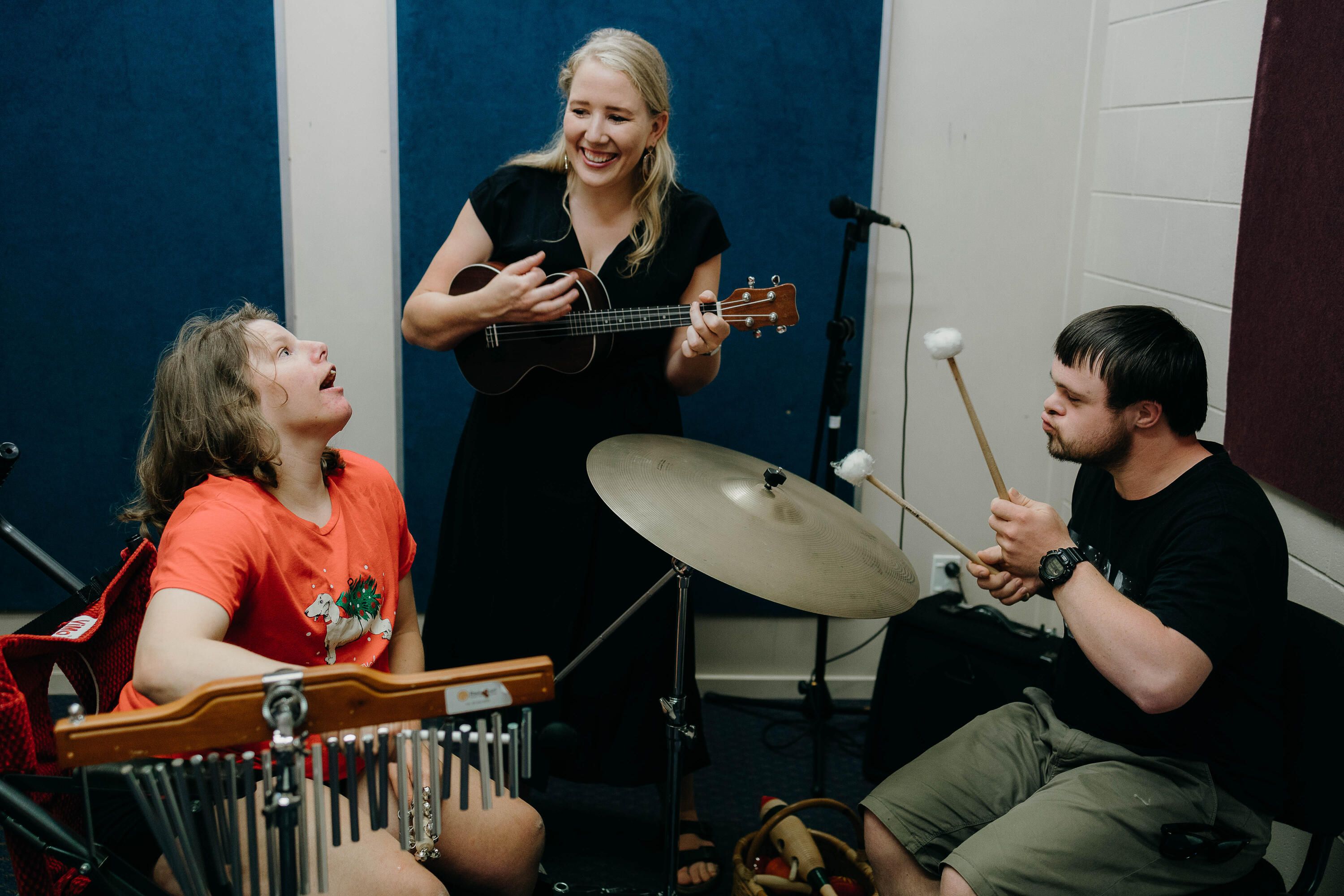
Another Raukatauri jam session. Photo: Supplied.
More important than the joy I get, it’s about what the musical relationship can do for the people who I am there to support.
So if musicians want to genuinely connect with people and bring about positive change in the world through their music, why wouldn’t they think about becoming a music therapist?
